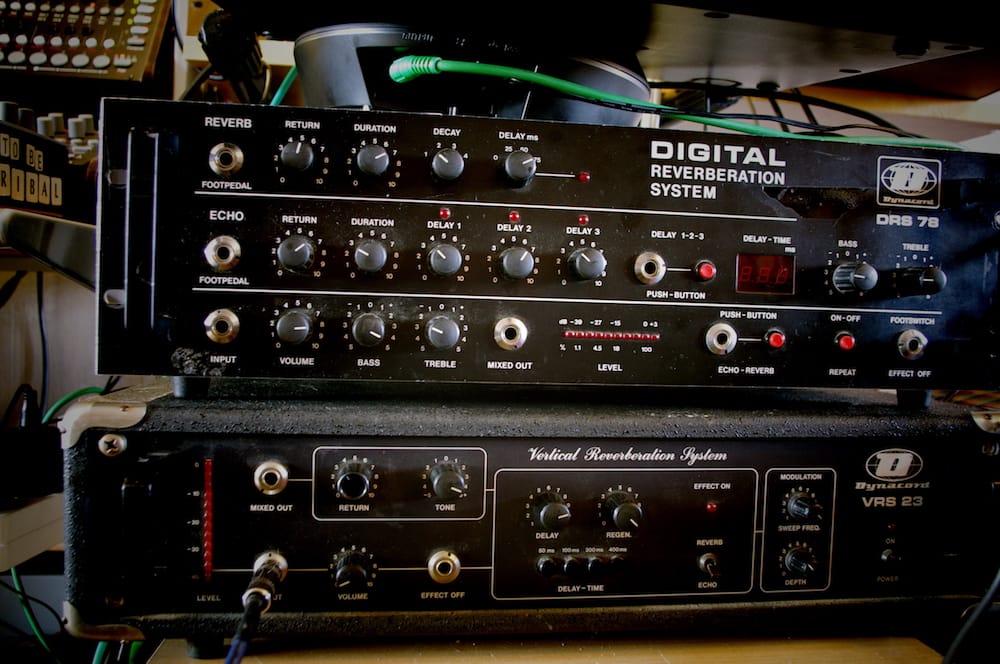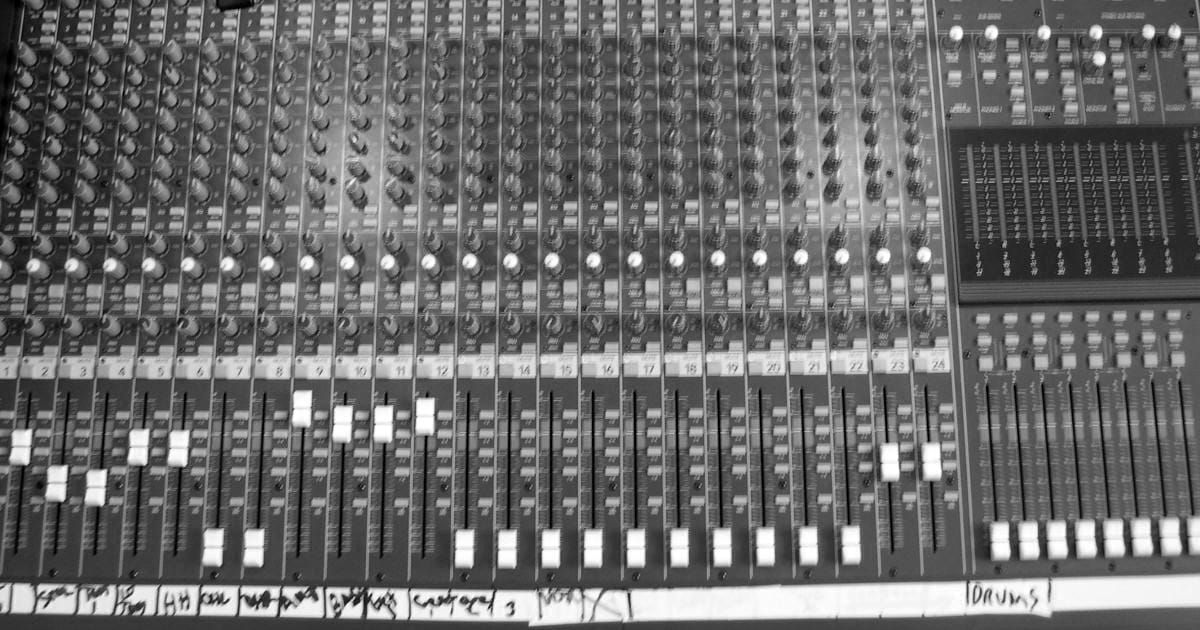Master the use of reverb in your recordings and watch your lifeless, two-dimensional mix turn into a three dimensional panorama, says producer Steve Hillier.
1. Write a song starting with the drums. This is madness. Can you imagine Lennon and McCartney waiting for Ringo to set up his drum kit before writing their next Beatles smash? Obviously not.
2. Compress everything. At least twice. Anyone doing this in their mixes should stop now. Modern DAWs have an internal dynamic range that's comparable to a pin dropping versus the sound of the big bang. Try using it, rather than squashing your music to the flatness of a pancake being sucked into a black hole. Compressors are like guns...only the sane should ever pick one up.
3. Use reverb badly, or not at all... Unlike compression, most people like reverb. How can I say this with such confidence? Because nearly everything you've ever heard uses reverb. Everything. Reverberation is what you hear when the sound from an event, like a shot being fired from a gun, bounces off a reflective surface, such as a wall, and then into our ears. It's a fundamental core component of the sound we hear, and our brains have evolved to use the information contained in reverb to help us survive in our everyday lives. If we're hearing lots of sounds with long reverb tails on them, that suggests we're in a large room, such as an aircraft hanger. Lots of short 'early reflections' we're probably in a small room. Everything we hear has some reverberation on it before it ends up in our ears.

Too many novice programmers and musicians don't know how to use reverb, so they shy away from it, leaving their mixes dryer than Stewart Lee. Or they go the other way and use a totally over the top reverb sound, and get wetter than a Michael McIntyre show. Perhaps programmers & musicians are confusing acoustic size with acoustic impact?
Good use of reverb will make a component of a mix sound bigger, fuller and more comfortable for your audience. Without it, the sound will be tiny and illogical; think about it, in real life when will you ever hear a big dry sound? The answer is never. Ever. On the other hand, too much reverb and the mix will be wet and flabby, too big for anyone to comprehend.
So what do we do then? First, you need a good quality reverb unit or plugin, don't use just any old reverb plugin. I have a theory that the reason that reverb went out of fashion was related to the fact everyone used way to much of it in the eighties. And many of them were using nasty cheap digital units. There's no excuse for that today. Invest some cash and buy one each of both of these: A traditional digital reverb or a convolution reverb.
A convolution reverb unit works by generating reverb tails based on impulse responses recordings of reverberations from a real-world environment. They sound great; the best are extremely realistic and open up a world of possibilities. But you'll need a traditional digital reverb as well, probably a plugin based on classic hardware form the past.
Since the late 1970s and up until about five years ago pretty much all reverb on records was simulated in some way usually by a microprocessor delaying audio, feeding it back into itself, doing some clever filtering and sticking it out the other end. It sounds great, if a little synthetic. But so what? This is the sound of records and they still sound great today.

Here's how I use reverb in my own work. Your mileage may vary but most mix engineers I know use this approach or a variation on it. Set up three reverb plugins as send effects on a bus, not as insert effects. The first will be short (less than 0.5 sec) and come from a convolution reverb using a room impulse response. The second will be a traditional digital reverb sound, such as a plate reverb, set to around 1.5 seconds decay. The last will be a 'third option', normally reserved for vocals and normally another plate or hall sound.
I then balance my sounds without reverb. Please note that I only use the bare minimum of compression at this point too! When I'm happy with my mix, I then start placing my sounds in an imaginary three dimensional space. The shorter reverb sound places the drums and other high energy or rhythmical sound sources at the front of my stage, the larger reverbs put those sounds slightly further back and into a supporting role. The more reverb, the bigger the sound but also how far away it is.
Thinking of your mix as a three dimensional illusion is crucial for a comfortable and exciting result. Without reverb, your mix will sound like it's stuck inside the speakers. Reverb brings the sounds alive and gives them the opportunity to leap out of headphones! Why do so many musicians and programmers get this bit wrong?
What this all comes down to, time and time again, is the disconnect between brains, ears and music. Inexperienced audio musicians and programmers get into the habit of searching for answers to why their mix isn't working with the same cognitive tools that they use to explain why their internet router isn't connecting to their laptop.
This is not how music works. Our ears and our hearts should guide 99% of our musical work, the remaining 1% comes from experience and knowing how to use the equipment. So, from here on, start listening carefully to what's going on around you. Listen to the difference between the sound of talking voices in a car and in the street. That's reverb. Listen to the difference between the sound of a tune in a club or in your iPhone headphones. That's reverb.
Listen to the sound of you brushing your teeth in a tiled bathroom. That's reverb. And then, listen very carefully to the difference between your lifeless, static, two-dimensional mixes and three dimensional panoramas of the artists you most admire. *Actually, the MIDIverb does have some great uses and you can probably pick one up for nothing at a jumble sale now if you look hard enough. Just don't use it as your primary reverb tool.
All sorts of posts about everything to do with life as a professional musician...

